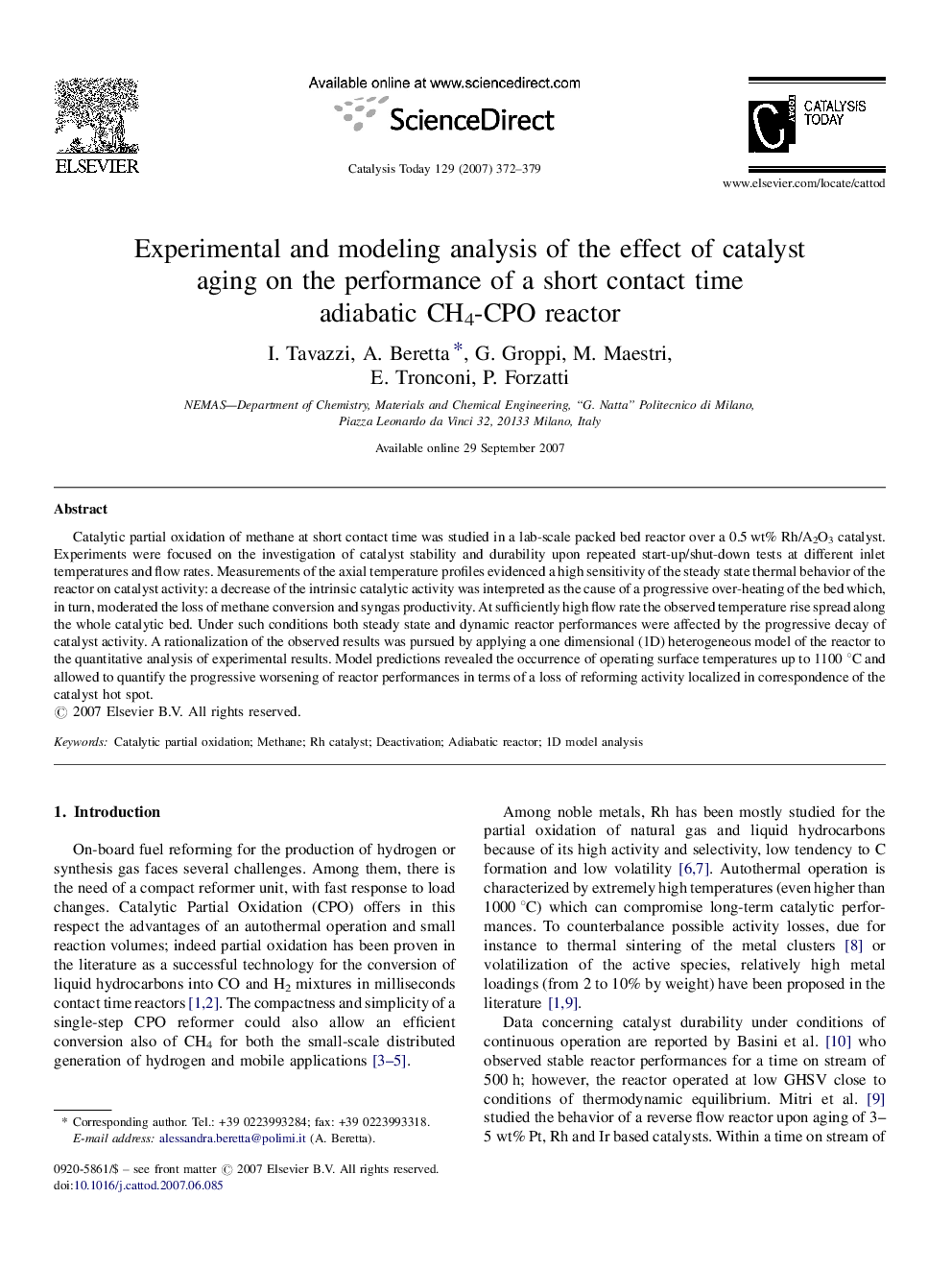| Article ID | Journal | Published Year | Pages | File Type |
|---|---|---|---|---|
| 57478 | Catalysis Today | 2007 | 8 Pages |
Catalytic partial oxidation of methane at short contact time was studied in a lab-scale packed bed reactor over a 0.5 wt% Rh/A2O3 catalyst. Experiments were focused on the investigation of catalyst stability and durability upon repeated start-up/shut-down tests at different inlet temperatures and flow rates. Measurements of the axial temperature profiles evidenced a high sensitivity of the steady state thermal behavior of the reactor on catalyst activity: a decrease of the intrinsic catalytic activity was interpreted as the cause of a progressive over-heating of the bed which, in turn, moderated the loss of methane conversion and syngas productivity. At sufficiently high flow rate the observed temperature rise spread along the whole catalytic bed. Under such conditions both steady state and dynamic reactor performances were affected by the progressive decay of catalyst activity. A rationalization of the observed results was pursued by applying a one dimensional (1D) heterogeneous model of the reactor to the quantitative analysis of experimental results. Model predictions revealed the occurrence of operating surface temperatures up to 1100 °C and allowed to quantify the progressive worsening of reactor performances in terms of a loss of reforming activity localized in correspondence of the catalyst hot spot.
